Disasters disrupt hundreds of thousands of lives every year they can strike quickly and without warning. If a disaster occurs in your community, local government and disaster-relief organizations try to help you. But you need to be ready as well. Responders and relief workers may not be able to reach you and your family immediately. Families and communities can work together to cope with disasters by preparing in advance. Being prepared and understanding what to do can reduce fear, anxiety and losses that accompany disasters. Knowing what to do is your best protection and your responsibility. Help your family and community to know that if they are prepared, they need not fear emergency situations.
Before an Emergency
It is critical that everyone is prepared for an emergency. Remember, sometimes emergencies are so immense that responders cannot immediately assist you or your family. It is your responsibility to prepare yourself by:
- Making a plan – visit our family preparedness section for help with this
- Make sure everyone in the family knows the plan
- Be trained in first aid and CPR (Cardio Pulmonary Resuscitation)
- Build emergency kits – additional recommendations are available in the Family Preparedness At Home section
- Volunteer
- Visit IMERT’s Pinterest page, where several resources for building preparedness resources have been compiled.
For more information, select a topic below
Animals / Pets |
Emergency Kit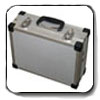 |
Preparedness 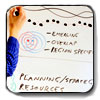 |
Functional Needs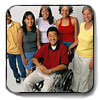 |
Communications  |
Home Safety  |
Seniors  |
Utilities |
During an Emergency
When an emergency occurs, things may be hectic. Remember, it is in the best interest of you and your family to be prepared for any emergency. When an emergency does occur, it is your responsibility to:
- Listen to local radio and TV for special announcements and instructions
- Review your plan with your family members
- Have your Disaster Kit and Go Bag ready for possible use
- Make sure your contact person knows your status and where you are going
- Be ready to take appropriate protective actions
For more information, select a topic below.
Disease Outbreak |
Earthquake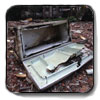 |
Fires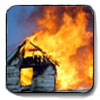 |
Hazardous Materials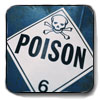 |
Nuclear Power Plant  |
Power Outage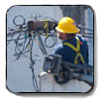 |
Staying Put / Evacuation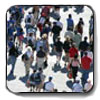 |
Terrorism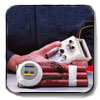 |
Transportation Safety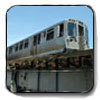 |
Weather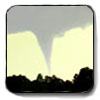 |
After an Emergency
When a disaster or emergency is over, you need to review what has occurred. To do this, you should:
- Check on the status of your family’s physical health and the safety of your home.
- If you have property damage, contact your insurance company and your local emergency management or local law enforcement agency to ensure your damage is included in a possible state or federal disaster declaration.
- Take one step at a time and pay attention to the mental health of your family.
- Restock your Disaster Kit and Go Bag.
- Review and update your Family Plan.
- Get trained and volunteer so you can help others in your community.
For more information, select a topic below.
Beware of Scams  |
Disaster Recovery  |
Volunteer Opportunities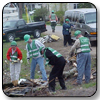 |
The above content was provided by Ready Illinois. Please visit their website for more details at Ready Illinois, www.illinois.gov/ready/
